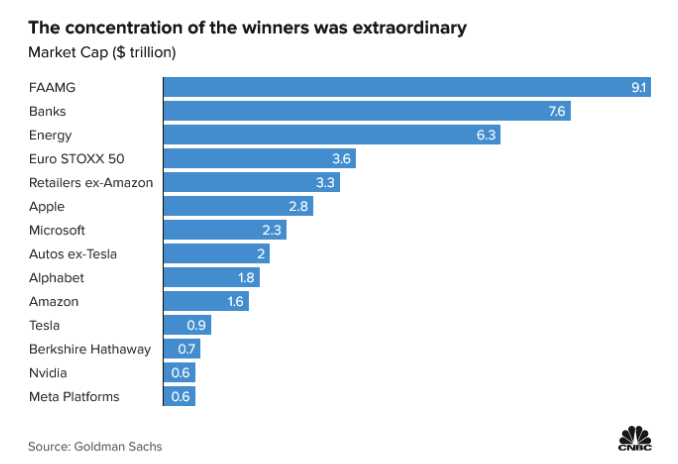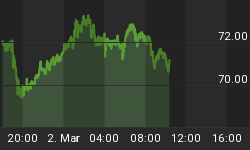Is the U.S. stock market in a mere market correction or a proper bear market? Whereas many long-term investors would wish for the former case, there are growing signs that it’s the latter scenario that’s actually playing out.
First off, the S&P 500 remains deeply in the red to the tune of 7.5% YTD amid rising Ukraine and Russia tensions.
Second, in the latest AAII Sentiment Survey, there are clear signs of mounting discouragement with the market, with the bulls dropping to 19.2% from 24.4% of those asked where the stock market would be in six month while the bears rose to 43.2% from 35.5%. Those who see the market staying about the same fell to 37.6% from 40.2%.
That marked the 29th lowest level of bullish sentiment since the weekly survey started in 1987.
"Why are investors so bearish? Looking at the indexes, losses have been pretty mild," Jason Goepfert at SentimenTrader has tweeted. "But a near-majority of the stocks many investors are concentrated in have been cut in half."
"And for one of the rare times in ~50 years, both stocks AND bonds are pulling back at the same time," he added. "Going back to the 1970s, a dual pullback in the total return of stocks and bonds has only happened 6 times."
"The vast majority of investors have never seen anything like this, and have no idea what to do."
Over the past five or so years, tech stocks, especially megacap names, have recorded much stronger earnings growth than the rest of the corporate sector. So much so that FAAMG--an acronym coined to represent Facebook parent company Meta Platforms Inc. (NASDAQ:FB), Amazon Inc. (NASDAQ:AMZN), Microsoft Inc. (NASDAQ:MSFT) as well as Google’s parent Alphabet Inc. (NASDAQ:GOOG)-- is now 50% bigger than the entire global energy industry and almost 5x the size of the global auto industry excluding Tesla Inc. (NASDAQ:TSLA), according to Goldman Sachs.
J.P. Morgan strategist Marko Kolanovic concurs, saying this isn't just a stock market correction, but a full-bodied bear market, thanks to runways inflation and an overly hawkish Fed.
"Stocks are in bear market territory and erased their post-pandemic re-rating, small cap valuations are at 20Y lows, and investor sentiment is bearish. Many market metrics such as recent performance of high vs. low beta stocks and valuations of small caps are already fully pricing in a recession - something we do not see materializing,’’ Kolanovic has written in a note to investors.
The JPM analyst notes that on the valuation side of things, the S&P 500 post-pandemic re-rating has almost been completely erased with PE now only 0.5x higher vs. pre-pandemic level when rates were more restrictive and fundamentals were less supportive.

Source: CNBC
Stock picking back in vogue?
Peter Oppenheimer, chief global equity strategist at Goldman, says normalcy is beginning to return to the stock markets with Silicon Valley giants beginning to lose their grip on the market.
“We are back to a more ‘normal’ cycle where we expect investors to be rewarded for making sector and stock decisions related to potential growth relative to what is priced. This should mean a return to Alpha,” the GS analyst has affirmed.
“We believe that we are entering a new environment where the influence of technology is rapidly broadening to impact virtually every industry. Moving forward it will become less easy to differentiate between what is and what is not a technology company, and this should broaden out the opportunities across more sectors,” the strategist has told CNBC.
The market expert says stock picking and the hedge fund industry could be making a comeback, with hedge funds losing 1.7% on average in January, compared to S&P 500′s 5.3% loss in its worst January since 2009.
Active funds have routinely underperformed passive funds over several decades. Even the common aphorism that active funds tend to outperform their passive brethren during fast-changing markets did not exactly pan out during the pandemic, with only 47% of the nearly 3,000 active funds that Morningstar analyzed outperforming their average passive counterpart in the 12 months through June 2021.
That’s roughly what you would expect from a coin flip.

















